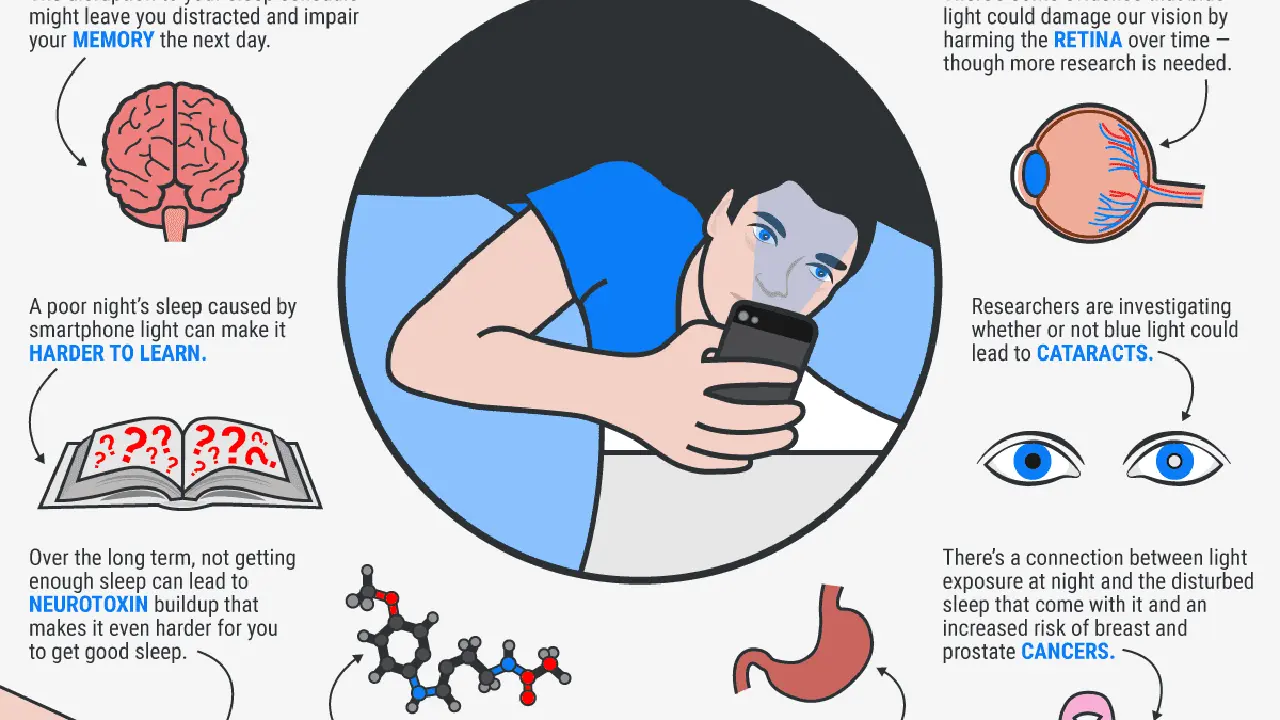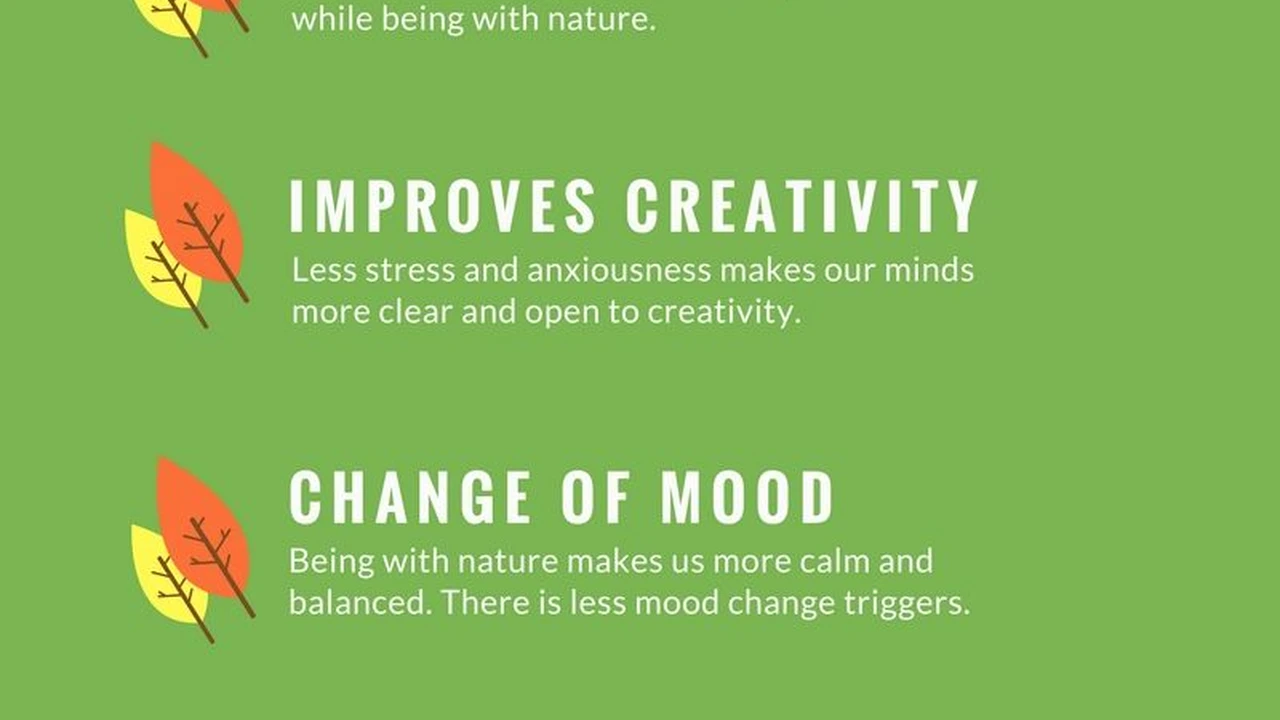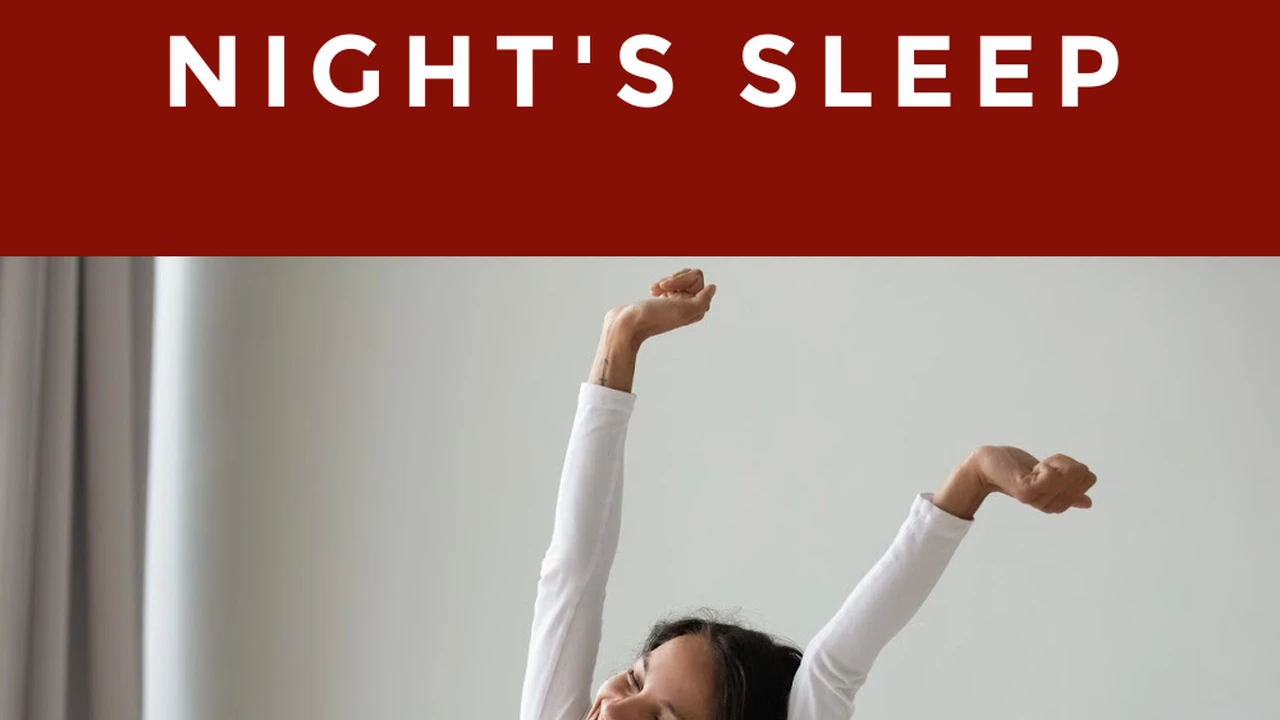The Impact of Screen Time on Your Sleep

Learn about the impact of screen time on your sleep patterns and overall sleep quality. Learn how blue light emitted from screens can interfere with your sleep. Limit screen time before bed for improved sleep.
Understanding Blue Light and Sleep Disruption
Okay, let's dive into why your phone is basically a sleep saboteur. It all comes down to blue light. Our devices – phones, tablets, laptops – emit a lot of blue light. This type of light is similar to the light emitted by the sun, which is great during the day because it helps us stay alert and awake. However, when we're exposed to blue light in the evening, it messes with our natural sleep-wake cycle, also known as our circadian rhythm. This rhythm is regulated by a hormone called melatonin, which makes us feel sleepy. Blue light suppresses melatonin production, making it harder to fall asleep and stay asleep.
The Science Behind Screen Time and Melatonin Suppression
Here's the nerdy stuff: special cells in our eyes are particularly sensitive to blue light. When these cells detect blue light, they send signals to the brain that inhibit melatonin release. This is why staring at a screen right before bed can make you feel wired and prevent you from drifting off to dreamland. Studies have consistently shown a link between evening screen time and reduced sleep duration, delayed sleep onset (meaning it takes longer to fall asleep), and poorer sleep quality. It’s like telling your brain it’s still daytime when it should be winding down for the night.
The Detrimental Effects of Poor Sleep Quality due to Screen Exposure
So, what happens when you consistently get poor sleep because of too much screen time? A whole host of problems, unfortunately. Lack of sleep can impact your mood, making you irritable, anxious, or even depressed. It can also impair your cognitive function, making it harder to concentrate, remember things, and make decisions. Physically, poor sleep can weaken your immune system, increase your risk of chronic diseases like diabetes and heart disease, and even contribute to weight gain. Basically, skimping on sleep is like short-circuiting your body's ability to function properly. And all because of that blue light beaming from your phone!
Practical Tips for Minimizing Screen Time Before Bed
Alright, enough doom and gloom. Let’s talk about what you can *do* to combat the negative effects of screen time on your sleep. Here are some actionable strategies:
- Establish a “Screen-Free Zone” Before Bed: This is the golden rule. Aim to put away all electronic devices at least one to two hours before you go to sleep. This gives your brain time to wind down and start producing melatonin.
- Use Blue Light Filters: Most smartphones and tablets have built-in blue light filters that you can enable in the evening. These filters reduce the amount of blue light emitted from the screen, making it less disruptive to your sleep. Look for settings like "Night Shift" (iOS) or "Night Light" (Android).
- Download Blue Light Blocking Apps: If your device doesn't have a built-in blue light filter, there are plenty of apps you can download that will do the same thing. Popular options include f.lux (for computers) and Twilight (for Android).
- Adjust Screen Brightness: Lowering the brightness of your screen can also help reduce the amount of blue light you're exposed to. Dim the lights in your room as well to further signal to your brain that it's time to sleep.
- Consider Blue Light Blocking Glasses: If you absolutely *must* use screens before bed, consider wearing blue light blocking glasses. These glasses have special lenses that filter out blue light, protecting your eyes and brain.
- Replace Screen Time with Relaxing Activities: Instead of scrolling through social media or watching TV before bed, try engaging in relaxing activities that don't involve screens. Read a book (a real paper book!), take a warm bath, listen to calming music, or practice meditation.
Product Recommendations: Blue Light Blocking Glasses
Okay, let's talk about some specific products that can help you minimize your exposure to blue light. First up: blue light blocking glasses. There are tons of options on the market, ranging in price and style. Here are a few recommendations:
- Gamma Ray Optics Blue Light Blocking Glasses: These are a popular and affordable option. They have a classic design and come in a variety of colors. They typically cost around $20-$30. Use Case: Ideal for general use at home or in the office. Comparison: Compared to cheaper, unbranded options, Gamma Ray Optics offers better lens quality and durability. They are not as stylish as some higher-end brands, but they provide excellent value for the price. Price: $20-$30
- TIJN Blue Light Blocking Glasses: TIJN offers a wider range of stylish frames and lens options. They also have models specifically designed for gaming. Prices range from $25-$45. Use Case: Great for fashion-conscious individuals who want to protect their eyes from blue light. The gaming models are suitable for extended screen time during gaming sessions. Comparison: TIJN glasses are more stylish than Gamma Ray Optics and offer a better fit for different face shapes. However, they may not offer significantly better blue light blocking performance. Price: $25-$45
- Swanwick Sleep Swannies Blue Light Blocking Glasses: These are specifically designed for nighttime use. They have amber-tinted lenses that block a higher percentage of blue light than clear lenses. They are more expensive, typically costing around $70-$90. Use Case: Best for wearing in the hour or two before bed to maximize melatonin production. The amber tint is not ideal for daytime use. Comparison: Swannies offer the best blue light blocking performance, but their amber tint makes them less versatile. They are a good investment for people who struggle with insomnia or have very sensitive sleep patterns. Price: $70-$90
Product Recommendations: Blue Light Blocking Screen Protectors
Another option is to use a blue light blocking screen protector for your phone or tablet. These protectors filter out blue light from the screen itself.
- EyeJust Blue Light Blocking Screen Protector: This screen protector is designed to block harmful blue light while maintaining screen clarity. It's available for various iPhone models. Use Case: Suitable for individuals who use their phones frequently throughout the day and want to reduce blue light exposure. Comparison: EyeJust offers a good balance between blue light blocking and screen clarity. It's more expensive than generic screen protectors but provides better protection against blue light. Price: $35-$50
- Ocushield Anti Blue Light Screen Protector: This screen protector is designed to filter out blue light and also provides anti-glare protection. Use Case: Ideal for individuals who work in bright environments or are sensitive to glare. Comparison: Ocushield offers both blue light blocking and anti-glare protection, making it a good choice for users who want to reduce eye strain. Price: $30-$45
Product Recommendations: Dedicated Sleep Devices
Finally, consider using devices designed to promote better sleep, rather than relying on your phone before bed.
- LectroFan White Noise Machine: This device generates white noise to mask distracting sounds and create a more peaceful sleep environment. Use Case: Ideal for individuals who live in noisy environments or have trouble falling asleep due to external disturbances. Comparison: LectroFan offers a wide range of white noise sounds and adjustable volume levels. It's a good alternative to using a phone or tablet to play white noise. Price: $50-$60
- Amazon Echo Dot (with Sleep Sounds): While technically a screen-enabled device, you can use it *without* the screen. Use voice commands to play relaxing sleep sounds or guided meditations. Use Case: Great for creating a relaxing bedtime routine without relying on a phone. Comparison: More versatile than a dedicated white noise machine, but requires careful management to avoid using the screen before bed. Price: $40-$50
Making a Change: Gradual Reduction vs Cold Turkey
Don't feel like you have to overhaul your screen habits overnight. Start small! Maybe try putting your phone away 30 minutes before bed for a week, then gradually increase the time. Or, focus on replacing screen time with one relaxing activity that you enjoy. The key is to find what works best for you and stick with it. Remember, better sleep is an investment in your overall health and well-being. And ditching that pre-bedtime scroll is a great place to start!
:max_bytes(150000):strip_icc()/277019-baked-pork-chops-with-cream-of-mushroom-soup-DDMFS-beauty-4x3-BG-7505-5762b731cf30447d9cbbbbbf387beafa.jpg)





